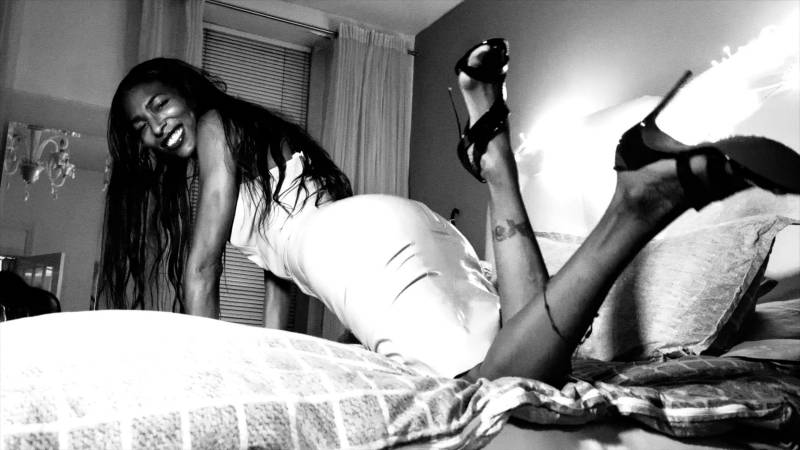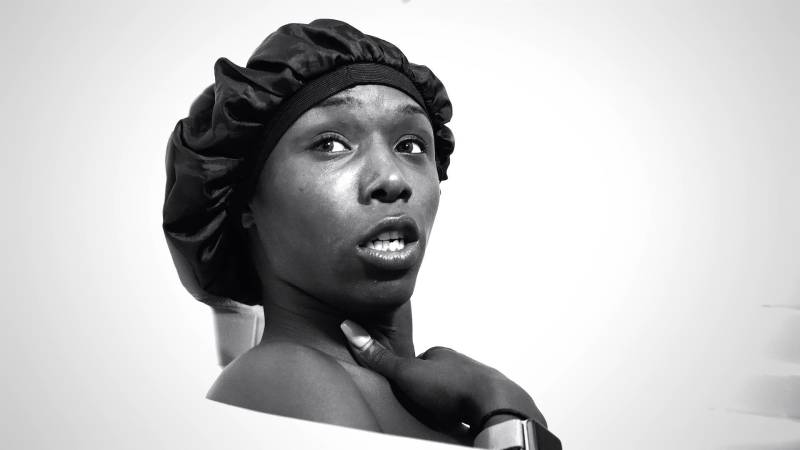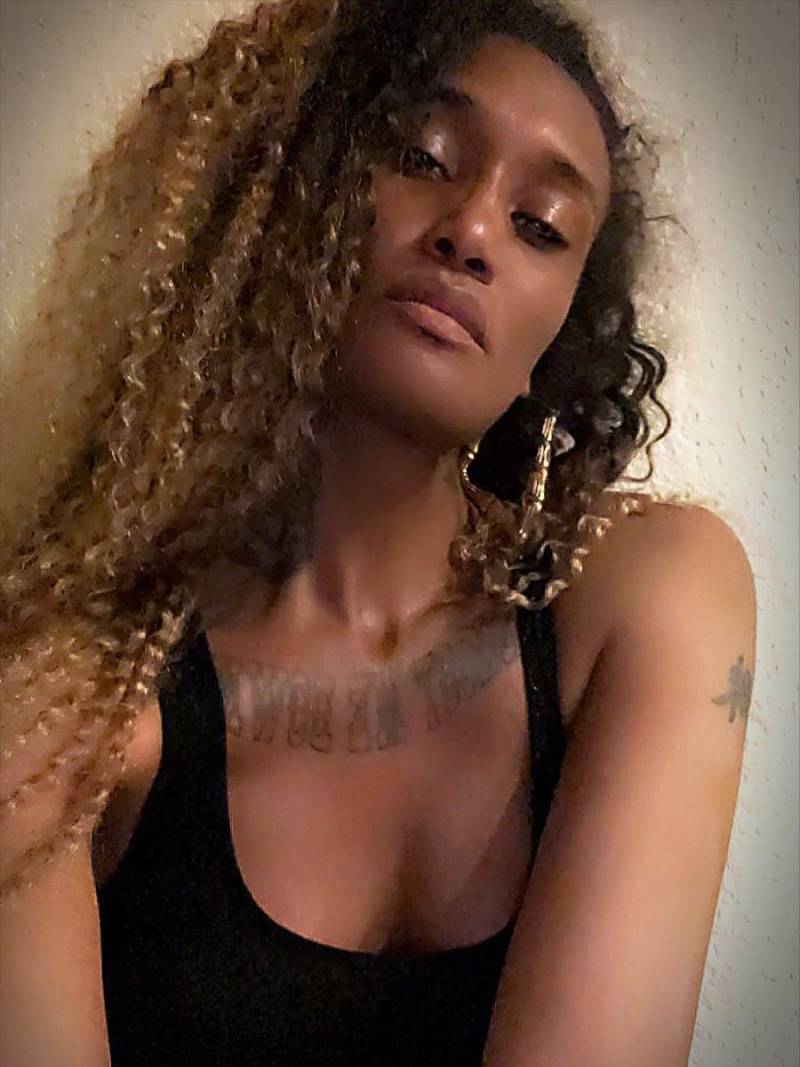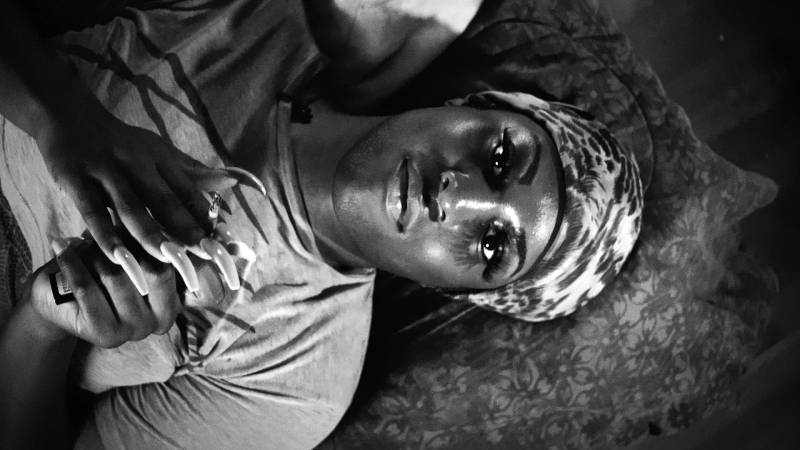A bold, blistering and beautiful work of Black affirmation, D. Smith’s Kokomo City does not fit neatly into any of the conventional boxes of documentary. By turns curious and angry, and clear and confounding, the film ultimately lands as a statement of defiance. If Kokomo City begins (like most films) as an invitation, it is not intended for everybody.
Powerful, Stylized ‘Kokomo City’ Allows Trans Sex Workers to Strut

The filmmaker assembles the candid, addressed-directly-to-the-camera testimonies of four Black trans sex workers — Daniella Carter (Queens), Dominique Silver (Manhattan), Koko Da Doll (Atlanta) and Liyah Mitchell (Decatur, Georgia) — interspersed with the musings of a handful of men who are attracted to trans women. Smith plainly encouraged her subjects to talk about whatever they wanted, which propels the film far beyond descriptions of how the subjects got into sex work, the threats to life and limb, and their hard-earned perspectives on money, clients, body image and relationships.
While some of those experiences and insights might be universal among sex workers, the most compelling comments pertain specifically to being trans. “We’re meeting guy after guy who’s in denial after denial,” Daniella Carter says. “In no way are they there to protect us. They’re there to exploit us, to fetishize us.”

The loathing and fear that most trans people (including sex workers) encounter is something of a recurring theme in Kokomo City. Now consider that the film was shot before the current wave of irrational transphobia ginned up by Republican politicians, pseudo-religious fanatics and right-wing media, and this comment by a young man named Inw Tarxan (straight-talking with his friend Lexx Pharoah in a car) rings out: “When you’re young, that’s what you’re going to do: You’re going to hate who the people that love you tell you to hate.”
D. Smith was blindsided by a devastating form of that prejudice. A rising music producer (Lil Wayne’s Tha Carter III, among other credits), she came out as transgender in 2014. Overnight, seemingly, her calls weren’t returned and her career evaporated.
“It took me years to think about the fact that people around me loved D. Smith the guy, they trusted that person — literally one day I was wearing jeans and Timberlands and a trucker hat, and the next day I was wearing blue eyeshadow and heels,” she told The Guardian (UK) in a recent interview. “I didn’t give people a heads up, and you don’t owe anybody an explanation of who you are, but at the same time, how do you realistically expect people to completely accept you [straight away]? That’s actually not fair.”

Smith’s successful transition to filmmaking — Kokomo City received the Innovator and Audience awards in Sundance’s NEXT section and the Teddy for Best Documentary/Essay Film along with the Panorama Audience Award at the Berlin International Film Festival — is a triumph of style hand-in-glove with substance. Shot in luxuriously decadent black-and-white and studded with aggressive music cues (such as slide guitarist Kokomo Arnold’s 1934 “Sissy Man Blues”), Kokomo City is a visual and sonic delight.
The film’s aesthetic serves two purposes. From the outset, it demolishes the pro forma expectations of the social-issue documentary. We aren’t here to be educated and informed, nor to be immersed in the street grit of a largely out-of-sight social problem.
Secondly, the stylized blend of interviews, staged scenes and reenactments provides the quartet of protagonists with a heightened level of personal expression. Smith allows them to be glamorous without diminishing their power or anger. The overall effect is that we never tire of seeing and hearing Daniella, Dominique, Koko or Liyah.

All that said, Kokomo City doesn’t aspire to be a crossover film — that is, to raise the consciousness of mainstream, cisgender Americans about trans people (or sex workers, for that matter). It is painfully, powerfully profound about the Black American experience, however, thanks to the unique perspective of Black trans sex workers. Sex is often about power, which gives Dominique, et al their terrific insights.
The most unexpected and cutting observation is provided by the brilliant, bracing Daniella Carter, who acknowledges the pain they unwittingly caused their mother when they came out as trans.
“That has to hurt, as a Black woman hurt by Black men, then give birth to a Black man, and he says, ‘I’m not here to protect you, I’m here to be in some ways just as vulnerable as you,’” Carter bravely confides in us. “I think that’s hard for a lot of Black women to accept.”

‘Kokomo City’ opens Friday, Aug. 4 at the Roxie Theater in San Francisco. Gallerist Jonathan Carver Moore will moderate an opening night Q&A with Breonna McCree, executive director of the Transgender District, and Honey Mahogany, chair of the San Francisco Democratic Party.
The film also screens Aug. 7 and 8 at the Four Star Theater in San Francisco.

